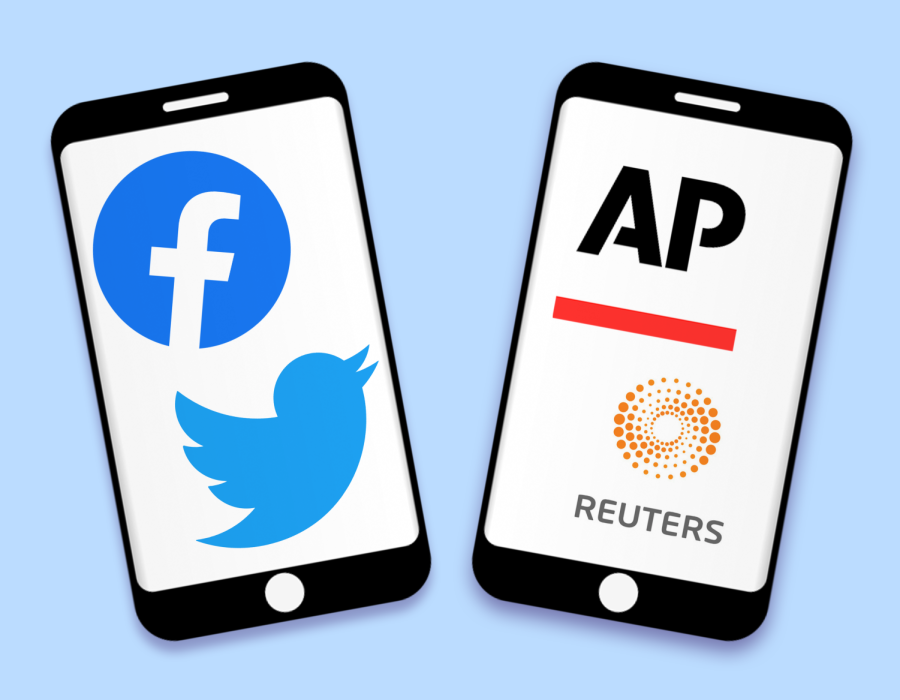Opinion | Stop getting news from social media
January 28, 2022
With the rise of activism on social media platforms like Instagram, Snapchat and TikTok, many people have resorted to using social media as a news source. In fact, according to a survey conducted by the Pew Research Center from Aug. 31 to Sept. 7, 2020, 53% of U.S. adults reported that they get their news from social media at least sometimes. This trend is incredibly problematic for a multitude of reasons.
Social media algorithms are biased to show a certain view to their users, ultimately skewing their opinions, especially politically. These algorithms are more influential than individuals who put out false or misleading information on the internet.
Dr. Ro’ee Levy, a lecturer at Tel Aviv University’s School of Economics, conducted research to understand the effects of social media on political opinion and polarization. His research ultimately found that social media algorithms are designed to hide media that is counter-attitudinal to one’s own political beliefs.
In short, social media doesn’t show users the whole picture. Instead, it is specifically designed to show users a single side of the story, making it an unacceptable news source.
Additionally, a study by Kristina Lerman, a lead scientist at USC Viterbi School of Engineering Information Sciences Institute, reveals that social media users have specific feeds which provide them an altered sense of reality. As users take in more of their unique feeds, they begin to believe their thoughts and opinions hold more validity, causing a positive feedback loop where they believe their opinions are widely held.
Get The Daily Illini in your inbox!
This cycle is dangerous because not only does it keep people from exposure to other beliefs and values, but it also leads to the adoption of extreme and unhealthy views.
People are no longer consuming credible, unbiased news but rather taking in the news they want to hear. Social media is the worst enabler of this: users can scroll or swipe away news and information they dislike, and the algorithms in the apps they’re using show them less unbiased content than an average person would need to see to stay informed.
TikTok is one of the strongest examples of news polarization within social media. During the 2020 presidential election, a user that interacted positively (through liking, commenting and sharing) with videos that supported one party, would begin to only see videos catered towards that party. Even worse, users can begin to consume inaccurate or misleading political videos.
Some users reacted to this phenomenon by creating accounts specifically geared toward a party, gaining a following by posting TikToks sharing misleading news and subsequently asking for money to “support their cause,” usually the purchase of a new top from Shein.
Social media users increasingly trust and believe each other, instead of reputable sources which they access less frequently. Many TikTok videos or Instagram posts will omit sources for the information they provide, and users don’t question it because it is exactly the kind of news they want to hear.
While social media shouldn’t be used as a news source, that doesn’t mean social media shouldn’t be used for information at all. Social media should be used to create awareness and bring attention to important issues, but never as the end all be all. Use social media to become aware of important news, but take the extra step to conduct research through credible sources.
A general rule of thumb when consuming new information is to approach everything with both hesitation and curiosity. If the news that you obtain from a social platform is relevant to you and something you would share with others, take time to see what unbiased sources have to say about that topic. Ending the increasing polarization in American society is a collective effort and ensuring that you’re informed accurately is the first step towards fixing this issue.
Sanchita is a freshman in LAS.
Hamza is a freshman in LAS.







